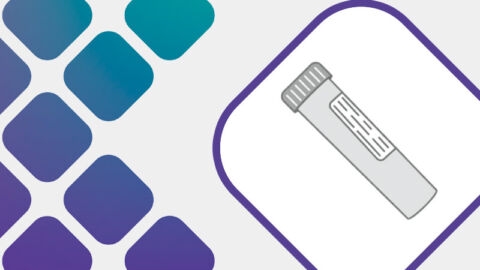I strongly disagree with the assertion by some individuals in the autism field that calcium is a problem to individuals on the autistic spectrum. Failure to provide adequate calcium is very dangerous and could lead to the loss of the eyes due to severe eye-poking behavior. Calcium deficiency can be a severe problem in normal children on a milk free diet since milk is a significant source of protein, vitamin D, and calcium needed for strong bones and teeth. Some physicians have reported rickets (1), a severe bone deformity, occurs in children with autism on the gluten and casein free diet who did not receive added calcium supplements. Calcium and vitamin D supplementation is essential to children on a casein free diet since most children with autism do not eat substantial amounts of other calcium-rich foods. Use of milk substitutes like B-Unique® provides adequate calcium, protein, and fat comparable to whole milk without the presence of casein and lactose that are problematic in most children with autism.
Children with autism may have an even more severe problem with calcium deficiency. Mary Coleman, M.D. (2) reported that children with autism who are calcium deficient are much more likely to poke out their eyes and a substantial number of children with autism have done so. I have talked to numerous parents of children with autism that began to touch their eyes after starting the casein-free diet. This abnormal behavior is associated with low urine calcium; blood calcium levels were usually normal. Treatment with calcium supplementation prevents this behavior. (I suspect that this behavior is due to increased eye pain due to high substance P or to deposits of oxalate crystals in the eye. Low calcium may act to intensify this pain and poking out the eye relieves the pain.) Dr. Coleman also found that speech developed very quickly after calcium supplementation in a portion of mute children with autism who had low urine calcium. Parathyroid hormone, calcitonin, and vitamin D were all normal in patients with autism but all of them had low urine calcium. In one case, according to a parent who contacted me, her child with autism persisted in poking at the eyes even after one eye had been poked out and surgically replaced. Calcium supplementation stopped this behavior immediately. I am aware of many other children with eye-poking behavior in which calcium supplements stopped this behavior in less than two days. Verbal autistic children say that their eye pain is severe and that calcium supplementation stopped their pain quickly. The urine calcium and magnesium tests will soon be a part of the Organic Acids Test offered by The Great Plains Laboratory, Inc.
It is important that calcium, magnesium, and zinc be in balance for optimal nutrition. Vitamin D supplementation may also be needed when milk is eliminated unless other sources of vitamin D are included in the diet or the child is exposed to adequate sunlight. Children with autism also need additional calcium to prevent oxalate deposition in the tissues. Although sardines and dark leafy greens like spinach, kale, turnips, and collard greens are high in calcium, all of these foods except sardines are high in oxalates. High oxalates can be fatal if formed in the renal tract. Oxalates in the urine are much higher in individuals with autism than in normal children. As a matter of fact, 36% of the children on the autistic spectrum had values higher than 90 mmol/mol creatinine, the value consistent with a diagnosis of genetic hyperoxalurias while none of the normal children had values this high. 84% of the children on the autistic spectrum had oxalate values outside the normal range (mean ± 2 std dev). None of the children on the autistic spectrum had elevations of the other organic acids (glyceric and glycolic acids) associated with genetic diseases of oxalate metabolism, indicating that oxalates are high due to external sources. When calcium is taken with foods that are high in oxalates, oxalic acid in the intestine combines with calcium to form insoluble calcium oxalate crystals that are eliminated in the stool. This form of oxalate cannot be absorbed into the body. When calcium is low in the diet, oxalic acid is soluble in the liquid portion of the contents of the intestine (called chyme) and is readily absorbed from the intestine into the bloodstream. If oxalic acid is very high in the blood being filtered by the kidney, it may combine with calcium to form crystals that may block urine flow and cause severe pain. However, such crystals may also form in the bones, joints, blood vessels, lungs, eyes, skin, heart, thymus, skeletal muscle, joints, fat, teeth, mouth, nerves, and even the brain. In addition, oxalate crystals in the bone may crowd out the bone marrow cells, leading to anemia and immunosuppression. Calcium citrate is the best source of calcium to prevent oxalate absorption because citrate ion blocks the absorption of oxalates in the intestinal tract (3). A combination of calcium citrate and magnesium citrate is the best form of supplement to provide calcium and magnesium needs while preventing excess oxalate buildups in the body.
Clinical References:
- 1. Hediger ML, England LJ,Molloy CA, Yu KF, Manning-Courtney P, Mills JL. Reduced bone cortical thickness in boys with autism or autism spectrum disorder. J Autism Dev Disord. 2008;38(5):848–856
- 2. Coleman, M. Clinical presentations of patients with autism and hypocalcinuria. Develop. Brain Dys. 7: 63-70, 1994
- 3. Caudarella R, Vescini F, Buffa A, Stefoni S. Citrate and mineral metabolism: kidney stones and bone disease. Front Biosci. 2003 Sep 1;8:s1084-106.





